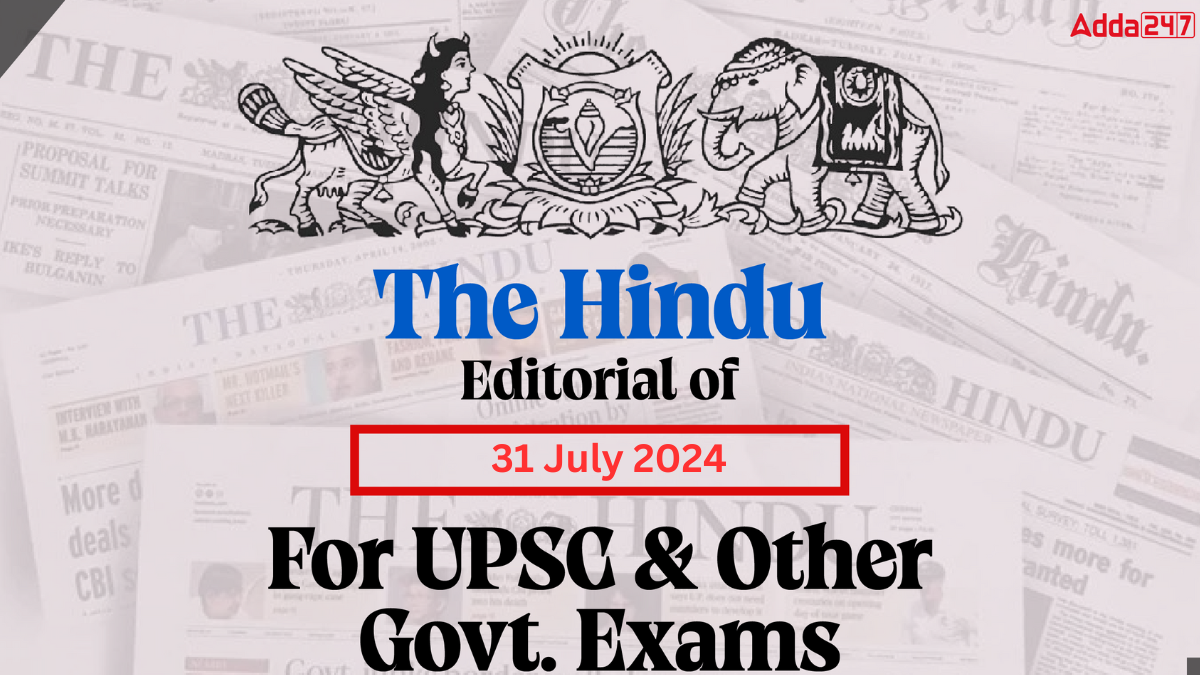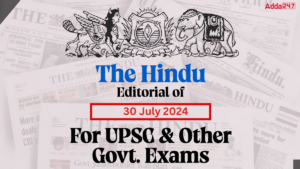Editorial: Court should limits Governors’ power to refer Bills to President without cause
The role of Governors in the Indian federal structure has come under scrutiny, especially concerning their handling of state legislation. Recent interventions by the Supreme Court in cases involving Punjab, Tamil Nadu, and Telangana have highlighted the contentious nature of this issue. The primary concern is whether Governors’ actions or inactions constitute a breach of constitutional principles and an undermining of federalism.
Supreme Court’s Stance
- Punjab Case: The Supreme Court ruled that Governors do not possess a veto over Bills passed by the state legislature. If they withhold assent, they must return the Bills to the Assembly, and if the Assembly re-adopts them, the Governor is obligated to grant assent.
- Telangana Case: The Court emphasized that Governors should act on Bills “as soon as possible,” implying urgency and constitutional duty.
Current Controversies
Despite these clear rulings, Governors in some states have continued to delay or withhold assent to Bills. This has prompted states like Kerala and West Bengal to challenge these actions in court. Specifically, Kerala has questioned the Governor’s decision to send certain Bills to the President, only to have them refused without explanation.
Constitutional and Federal Implications
The Constitution provides Governors with the option to refer certain Bills to the President for consideration. However, this provision appears to be misused, effectively giving the Union government a veto over state legislation. This undermines the federal structure envisioned in the Constitution, which grants significant legislative autonomy to states.
Specific Cases
- Kerala: Seven Bills, potentially not requiring Presidential assent, were sent to the President, with four being refused without reasons provided. Delays ranged from 23 to 10 months.
- West Bengal: Similar issues with Bills being referred to the President or delayed without action.
Broader Implications
The misuse of the provision for referring Bills to the President raises fundamental questions about the balance of power between the Centre and the States. At its core, this issue concerns the extent to which the Constitution allows indirect central intervention in state legislative matters. The actions of the Governors, guided by the Union government’s advice, appear to subvert the intended federal balance.
Call for Judicial Intervention
The judicial interventions in the Punjab and Telangana cases have set a precedent for limiting Governors’ discretion in handling state legislation. However, the persistence of such issues suggests a need for further judicial clarification and potential limitations on the use of the option to refer Bills to the President. This would safeguard the federal structure and ensure that state legislatures can function without undue central interference.
Conclusion
The ongoing controversies over the Governors’ handling of state Bills highlight a critical area of constitutional law and federalism in India. The Supreme Court’s adjudication on these matters is essential to delineate the boundaries of Governors’ powers and uphold the federal principles enshrined in the Constitution. This will ensure that state legislatures can operate with the autonomy intended by the framers of the Constitution, free from undue central intervention.



 Why India-Pakistan Partition Needed?
Why India-Pakistan Partition Needed?
 Today The Hindu Editorial of 1 August 20...
Today The Hindu Editorial of 1 August 20...
 The Hindu Editorial of 30 July 2024 For ...
The Hindu Editorial of 30 July 2024 For ...








